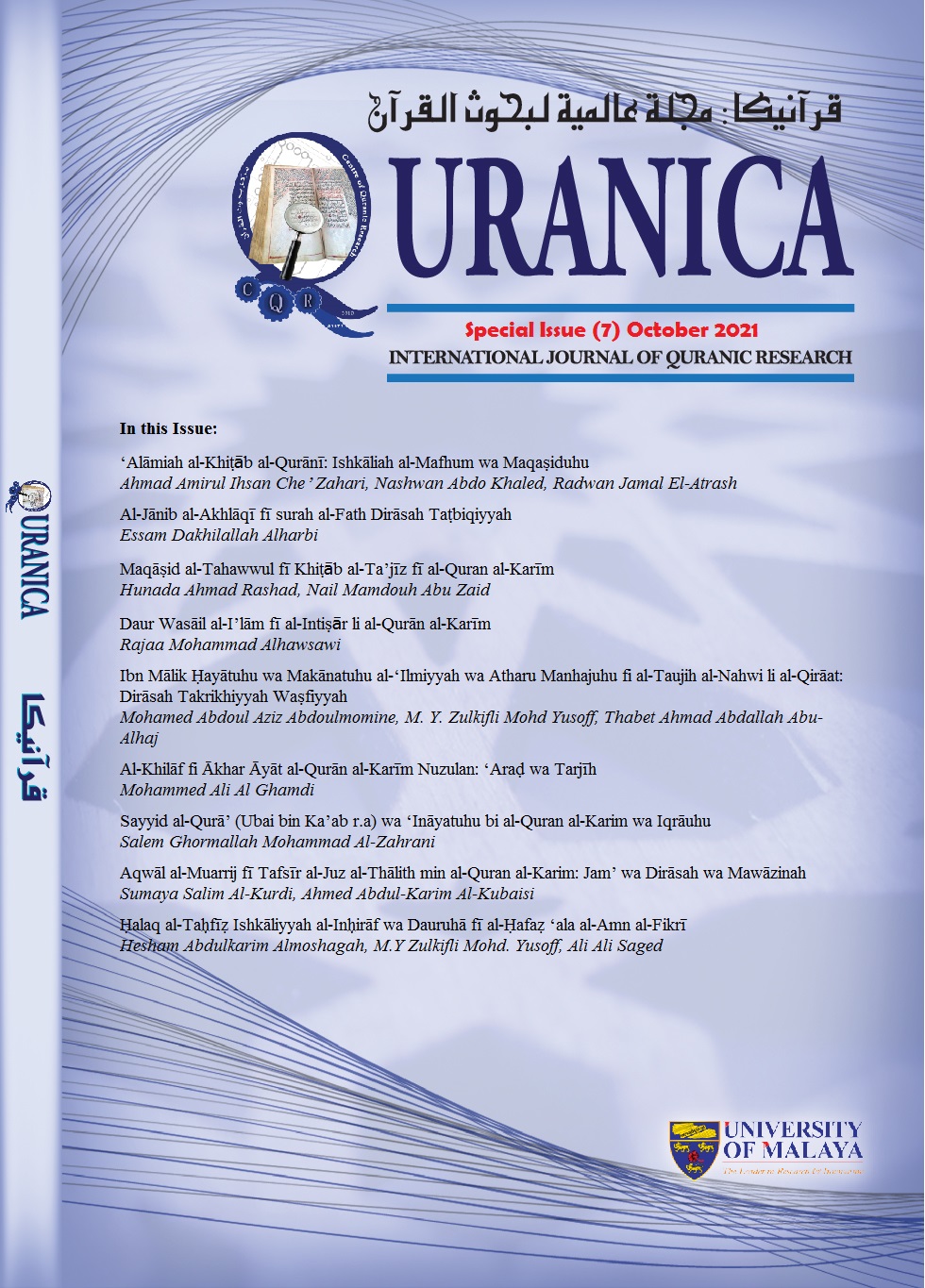Ibn Mālik Ḥayātuhu wa Makānatuhu al-‘Ilmiyyah wa Atharu Manhajuhu fi al-Taujih al-Nahwi li al-Qirāat: Dirāsah Takrikhiyyah Waṣfiyyah
DOI:
https://doi.org/10.22452/quranica.vol13no2.16Keywords:
Ibn Malik, Alfiyat Ibn Malik, The Summary, His AuthoressesAbstract
The methods of Allah to keep his wise book are still renewed in every time and place. Among which, the scholars decreed by Allah, who prepared and subjugated them to serve His words; Reading, dictating, composing...etc. And among those whom God Almighty has chosen and honored; So they spent their lives with the Noble Qur’an, Imam: Al-Shatibi, and Imam Ibn Malik. However, Ibn Malik did not show his skill in readings (Qera’at) as Al-Shatib did; But his linguistic writings testify to his scientific status, as well as the imams’ praise for his works. This where the problem of the study arose in anticipating the high position of Imam Ibn Malik and his great attributes in the service of the Book of Allah the almighty. He is one of the scholars of grammar and morphology, and he is the source of directing the readings, and he has some of the rules of his own, which he mentioned and which that his peers of scholars in the same filed did not touch upon; Like Imam Al-Shatibi, and the impact of these rules on the grammatical guidance of Qur’anic readings. The study aimed to identify Imam Ibn Malik, and clarify the rules that he mentioned and singled out and did not appear in others such as Imam Al-Shatibi, and the impact of Ibn Malik’s rules on the grammatical guidance of Qur’anic readings. The researcher used the historical and descriptive approach to achieve the objectives of this study. The study concluded with a number of results, the most important of which were: highlighting the scientific aspect and the jurisprudential standing of the imam, as evidenced by the scholars’ praise for him, through scientific literature, and highlighting his efforts in the art of Arabic language and readings, all of which has become obvious through the prominent role he played in the society in which he lived until his death.
Downloads
Downloads
Published
Issue
Section
License
Disclaimer
QURANICA makes every effort to ensure the accuracy of all its contents. However, opinions, discussions, views and recommendations are expressed in this journal do not necessarily reflect the official policy of QURANICA or views of its editors or publishers. Therefore, QURANICA and its publishers will not be liable for any controversy may be arisen. The journal reserves the right, at its sole discretion, to change its terms and conditions of publications.
Copyright
It is a condition of publication that manuscript submitted to the journal have not been published, accepted for publication, nor simultaneously submitted for publication elsewhere. By submitting a manuscript, the author(s) agrees that copyright for the article is transferred to the publisher, if and when the manuscript is accepted for publication.






